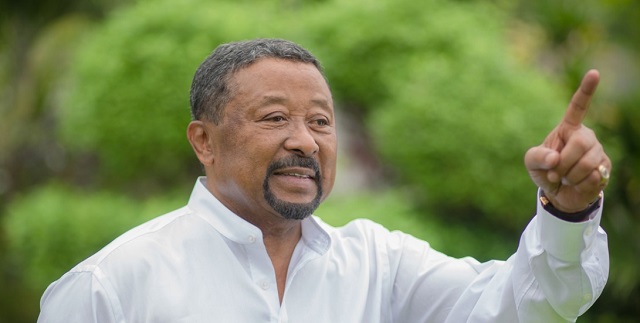
Libreville, Gabon | AFP | Ten people were injured in Libreville Tuesday as Gabon police broke up a rally organised to mark the return of opposition leader Jean Ping following a trip to Europe.
The interior ministry said there were “no deaths and no injuries” during the demonstration, according to spokesman Jean-Eric Mangala.
But an AFP journalist at the scene saw the injured receiving first aid at Ping’s headquarters where the former foreign minister had addressed thousands of his supporters following his return from a European tour.
“Two of them suffered deep wounds and had to go for emergency treatment,” a volunteer doctor at the scene told AFP.
The police dispersed the Ping supporters near the airport shortly before 5:00 pm (1600 GMT) after which they marched to his offices.
The interior ministry had warned that no rally would be allowed to mark Ping’s return from abroad.
Ping, a 74-year-old career diplomat, was narrowly defeated by incumbent Ali Bongo in presidential elections last August.
Bongo’s re-election by just a few thousand votes led the opposition leader to accuse the administration of electoral fraud.
Violence broke out days after the vote, and opposition figures say more than 50 people were killed in clashes. The official toll was only three dead.
A 25-year-old Ping supporter, who gave his name as Jospin, said that armed and hooded men had attacked people not far from the airport before Ping’s aircraft landed on Tuesday.
“I jumped to one side as they fired tear gas canisters. Suddenly I couldn’t feel my legs, but I kept running,” said Jospin, who was among those treated at Ping’s headquarters.
During his trip to Europe Ping gave several interviews to newspapers claiming that he was the “elected president” and that Ali Bongo was going to have to give up power.
He has been contesting Bongo’s re-election for the past ten months, though the vote results have been confirmed by the Constitutional Court.
Bongo took over power from his father Omar Bongo, who ruled for 41 years until his death in 2009. His second mandate has received a cool reception from the African Union, EU and United Nations.
Gabon has large oil, mineral and tropical timber resources, and its per-capita national income is four times greater than that of most sub-Saharan nations.
But about a third of its population of 1.8 million still live below the poverty line — the result, say specialists, of inequality, poor governance and corruption.
 The Independent Uganda: You get the Truth we Pay the Price
The Independent Uganda: You get the Truth we Pay the Price



